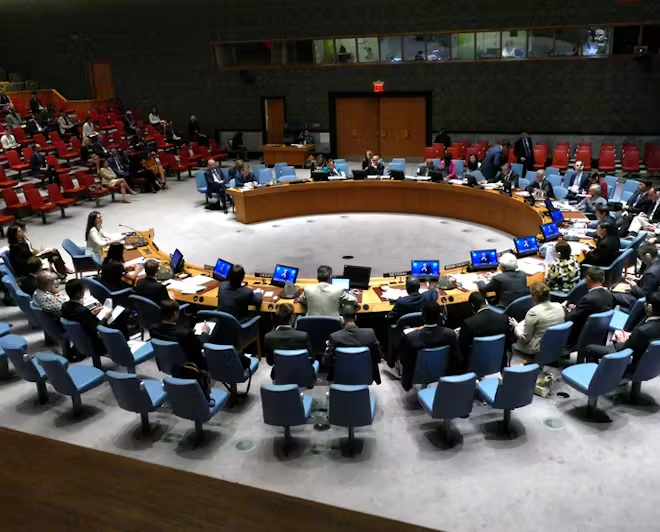Many of the world’s top universities for International Relations are located in Europe. A good place to look is the Shanghai Global Ranking for Political Sciences. Most recently, these universities were ranked best in their respective countries:
- United Kingdom: LSE London School of Economics and Political Science (4th worldwide), University of Oxford (9th)
- Netherlands: University of Amsterdam (11th)
- Switzerland: University of Zurich (26th), ETH Zurich (28th)
- Sweden: University of Gothenburg (27th)
- Italy: European University Institute (33rd)
- Germany: University of Konstanz (36th), University of Mannheim (38th)
- Belgium: University of Antwerp (51st-75th)
- Austria: University of Vienna (51st-75th), Central European University (76th-100th)
How is studying International Relations different from Politics?
International Relations will nearly always include some focus on politics – but that’s only scratching the surface!
International affairs is a much bigger subject than politics. While the relations between nation states are covered by international or global studies, there are wider subjects studied, such as non-governmental organisations (NGOs), world wide organisations, and the foreign policies of many nations and blocs, which help inform the interconnectivity of the world today.
Anthropology, demography, terrorism and human rights may be topics in both politics and international relations courses, but the focus will be wider in international relations – and look at the different ways nations try to solve these issues.
Top reasons to get a degree in International Relations:
In an increasingly global world, there are many great reasons to choose a Bachelor’s or a Master’s in International Relations; but these are the top ones:
- Cross-cultural communication. The internet has made it easier to do business with people from around the world – but what good is that connection if you don’t understand each other? International Relations will give you an understanding of how others see the world; which might be very different to your own views!
- Critical thinking skills. Similar to cross-cultural communication, an International Relations degree will teach you to question and understand different arguments. This is a key transferable skill for 21st century employers.
- There are so many opportunities! International Relations is a really broad topic, but don’t let that put you off. It means you can choose the subjects that interest you, and focus on them. There is a real advantage to the flexibility: You can also take an IR degree into almost any professional field. The skills you pick up are transferable, which is really valuable to employers and opens many different career options for you.
International Relations Jobs
Getting a Master’s degree in International Relations is one of the key ways you can make the world a better place. If you’re reading this, you must be wondering: what can you do with an International Relations degree?
You’ll have the opportunity to maintain positive diplomatic relations between countries, prevent international conflicts, and make sure things run smoothly between governments in our highly interconnected world.
As an international relations specialist, you will have a broad set of career options in addition to politics, including in fields like economics, social systems and the cultural life of communities.
Here are a few universities we recommend for International Relations studies:
- Northeastern University, the US
- Queen Mary University of London, the UK
- Radboud University, the Netherlands
- University of Pavia, Italy
- Masaryk University, the Czech Republic
Pursuing a Master’s degree in International Relations will provide you with great insights into foreign affairs, public policies, international development, economic trends, social issues, law and more.
But what are your International Relations career options? Popular International Relations degree jobs include: diplomacy work, lobbying, political analysis, international law and intelligence.
1. Diplomat – Maintaining good relations between countries
As a diplomat, you will represent and protect a nation’s interests abroad in terms of politics, trade and consular services. You’ll spend usually around three years in a foreign country. Some of your responsibilities will be:
- Act as a link between the country you represent and the country where you are stationed
- Collect and report on all the information that would affect your nation’s interests
- Discuss, negotiate and mediate with the local government issues about peace and war, trade, commerce, economics, as well as social and cultural aspects
2. Intelligence Specialist – Gathering state-critical information
As an intelligence specialist, you can work in the military, the navy, national security departments, or almost any state department of one of the national government agencies. Your main duties will include:
- Collect and analyse operational intelligence data
- Create mission reports, using data, maps and charts
- Evaluate results and prepare reports, statistics and graphics
- Maintain intelligence databases, libraries, and files
3. Political Analyst – Explaining the political climate
Generally, you’ll be employed by the government, but you can also find work opportunities within media companies or research institutes. Your tasks will be to:
- Inform about and interpret various political developments
- Analyse laws, public policies, and government decisions
- Advise government officials, political parties, or the media
- Forecast political trends and election results
- Put events into historical context

4. Lobbyist – Promoting ideas to those who can make them a reality
Lobbyists are usually hired by an association, corporation, or non-profit organisation to convince government members to make a decision that would benefit the organisation or company they are representing.
As a lobbyist you will perform tasks like:
- Monitor, research and analyse legislation
- Attend congressional hearings
- Reach out to government policymakers
- Use communication tools to promote ideas to the public